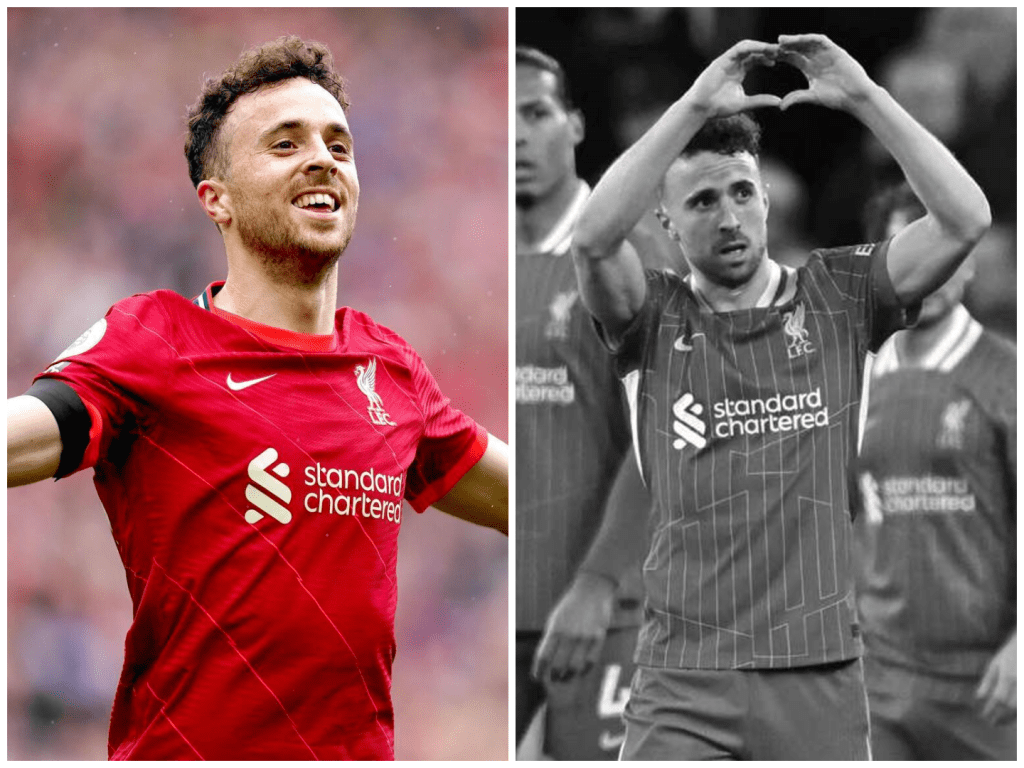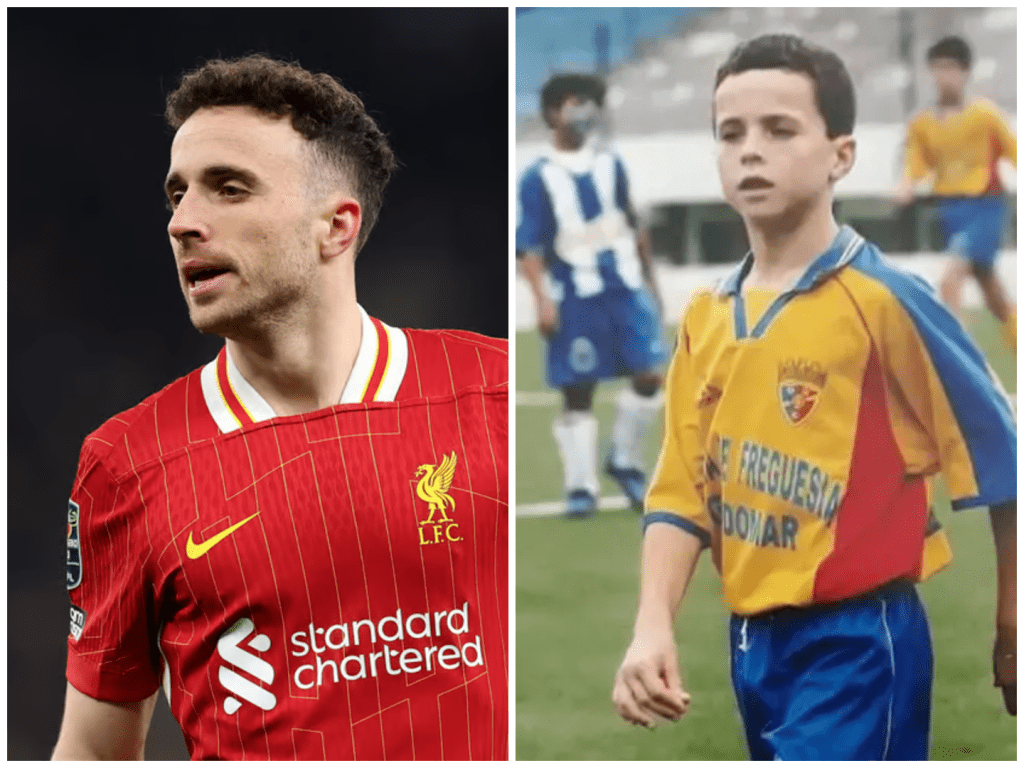The Day Football Lost Its Quiet Giant — Diogo Jota’s Sudden Death Feels Like Losing the Tim Duncan of Soccer

There are days when the world feels just a bit darker. July 3, 2025, was one of those days. The kind of morning where you check your phone and immediately wish you hadn’t. Where you read the headline again and again hoping it’s wrong. Diogo Jota, one of the most respected footballers of his generation, had died in a tragic car accident in Spain. He was just 28. And even now, hours and days later, it still doesn’t feel real.
He wasn’t supposed to go like this. Not Jota. Not the man who gave every ounce of himself on the pitch and still found a way to be humble off it. Not the man who had just gotten married five days earlier, who had three young children waiting for him at home, and who was finally hitting his stride again for both club and country. It was as if the football gods had made some cruel mistake. But there it was. A blown tyre, a car crash, a fiery accident in northwest Spain. And one of football’s most decent souls was gone.
Jota’s death shook more than just football. It felt like it sent shockwaves through sports everywhere. Because there’s something universal about quiet greatness. Jota wasn’t flashy, but he was effective. He wasn’t loud, but he led with action. He reminded fans of basketball’s Tim Duncan — the Spurs legend who built a Hall of Fame career without ever needing the spotlight. Like Duncan, Jota just showed up, did his job better than most, and let his work speak for itself. And like Duncan, he was beloved not just for what he did, but for how he did it.

Born in Porto, Jota never had the hype machine behind him. He didn’t go viral as a teen or sign massive deals before he turned 20. He started with small clubs, Paços de Ferreira and later Atlético Madrid, but it wasn’t until his loan spells — first at FC Porto, then at Wolverhampton Wanderers — that people started to really notice. In England, he began to glow. Wolves saw his hunger, and the fans saw his grit. There was something pure in the way he played, something that couldn’t be taught. He was always running, always pressing, always fighting — for every ball, every inch. He didn’t take plays off. He didn’t coast. And even when he wasn’t scoring, he was making life harder for opponents. Coaches love players like that. Fans live for them.
His move to Liverpool in 2020 wasn’t met with fireworks. There was curiosity, sure, but not overwhelming buzz. But it didn’t take long for him to prove he belonged. In a team stacked with stars — Salah, Mané, Firmino — Jota found his lane. His debut goal against Arsenal. The hat-trick against Atalanta. His clutch finishes in tight games. He wasn’t just filling gaps. He was shaping wins. Jürgen Klopp knew what he had. And the fans? They embraced him like he’d been there all along. Because Jota didn’t just play for Liverpool — he played like Liverpool. High intensity. High character. No excuses.
Off the pitch, he was even easier to love. He wasn’t chasing fame or building some brand empire. He stayed grounded. Married young. Stayed close to his roots. He’d bring his kids onto the pitch after games, hold them in his arms while waving to the Kop. That image — of a young dad smiling after another hard-fought match — says more about Jota than any stat sheet ever could. He wasn’t trying to be an icon. He was just trying to be a good man. And he was succeeding.
So when the news came that he’d died — just days after his wedding — the pain wasn’t just about football. It was about everything he represented. Loyalty. Humility. Hard work. Family. That kind of soul isn’t easy to replace. In football. In life. In any sport.
Across the world, tributes poured in. Ronaldo posted a heartbroken photo of the two in national colors. Klopp held back tears in an emotional message calling Jota “the heartbeat of everything right about this game.” Teammates, rivals, managers — they all said the same thing: we lost a real one. At Anfield, fans laid flowers. In Portugal, vigils were held. Even NBA players tweeted their condolences. Because whether you watch football or basketball or both, you understand loss. And you understand what it means when someone rare disappears.
There was a quietness to Jota that made him special. Just like Tim Duncan, who built a dynasty with the Spurs without ever needing theatrics, Jota made his mark through substance. In a world where athletes are often taught to shout their value, he whispered his with action. And in the end, that whisper roared louder than most noise ever could.
His kids will grow up hearing stories of their dad. Not just the goals he scored, but the man he was. His wife, newly married and now mourning, will carry a strength that few could imagine. His teammates will look at his empty locker and remember not just his talent, but his laughter. The fans will chant his name not out of routine, but remembrance. And the game? The game will miss one of its quiet giants.
Sometimes, the world loses people that felt too good for it. And Jota was one of those. A good man. A great player. A heart that gave everything and asked for nothing. He didn’t want to be adored. He just wanted to give joy — and he did.
Rest in peace, Diogo Jota. You were the Tim Duncan of football. And we were lucky to have you at all.